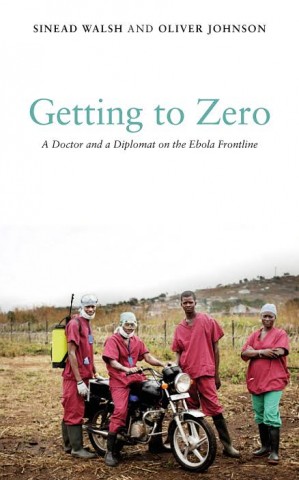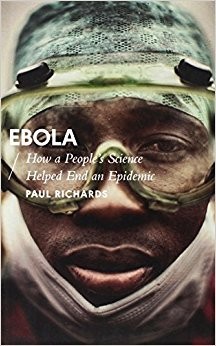- "It seems very hard to stop this now, but I think we all just have to believe that it is possible." (Norwegian epidemiologist, p. xvii)
Within development studies literature there is a sub-genre of memoires, biographies and dairies. Some are troubling to read. Not all are well written. Some are extremely informative. Most present aspects of the sector that are invisible for those outside of it. Daily routines. Successes and failures. Lessons. Lived experiences. I enjoy reading these works. "Getting to Zero: A Doctor and a Diplomat on the Ebola Frontline" (2018) by Sinead Walsh and Oliver Johnson falls in this sub-genre and is well worth a read. The book is quite long (422 pages), so I will not attempt a summary. Rather, a few parts that I think are worth sharing:
On training: "The second problem with Ebola trainings was that they fell into the 'training the trainers' trap, another common fault of aid programmes. The logic here was that an expert, often an international consultant flown in for the task, could provide a brief training to a selection of local staff brought together from across the country. These staff would then 'cascade' this training to their colleagues after returning home. Whilst this may be effective in some specific situations, generally a few hours or a few days of classroom-based teaching simply does not give someone enough knowledge or hands-on experience of a complex real-world challenge for them to be able to undertake it independently or teach it to others" (p. 52).
Learning in emergencies: "Key to any process of community engagement is respect. This meant being willing to sit down, listen, and then have a conversation with communities to find compromises between our preferred biomedical strategies and what they felt they could actually do. It took us a long time to get to that. Much of the community engagement in the early months was one-way, telling people what to do rather than understanding the kinds of challenges they faced and what ideas they had for how to protect themselves." (p. 343)
On roles within humanitarian and development activity: "the question of how assertive to be in a situation like this is at the core of the distinction between development and humanitarian approaches to international aid. The development mindset tends to focus on supporting the country to better serve its population over the long term, and therefore recognizes the importance of being led by the government. After all, it is the government that (usually) has the democratic legitimacy to make decisions about the country's future and is therefore best placed to run the services that aid agencies are looking to strengthen. Mutual respect and a collaborative relationship between the government and the aid agency are key in this kind of approach. As a result, timelines are usually slower than if aid agencies implement services directly. A humanitarian approach can sometimes appear to be the exact opposite. The focus in an emergency situation is not on long-term improvements to government systems but on immediate relief for those in need. There is a strong sense of urgency, and aid agencies will sometimes take control, with only a token consultation with the government, so that rapid decisions can be made. Humanitarian budgets can be quite large, allowing the swift hiring of additional staff and the bringing in of supplies for the short-term effort." (p. 66-67)
Pointing fingers: "Paul Farmer has written extensively about the tendency of people in the aid system to over-focus on weak accountability in developing countries, rather than questioning the role of developed countries, either today or historically. This is both about weak accountability within their international aid systems and about how they often contribute to corruption in developing countries." (p. 361)


